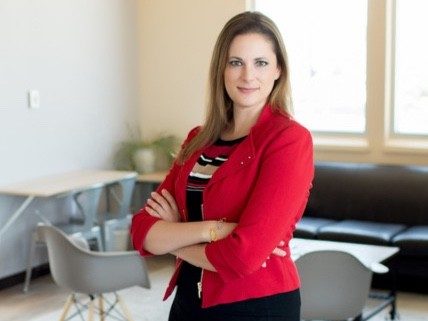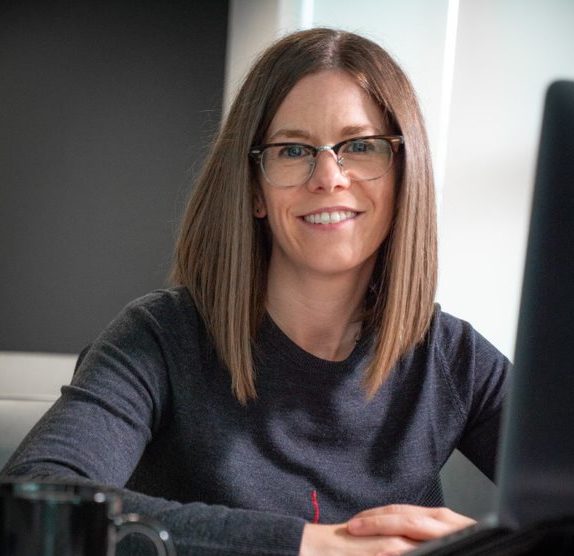The founder and CEO of the Digital Workplace Group, Paul Miller, explains how the shift in the mindset of workers, from that of misery and obligation to one that’s centered around passion and enjoyment is facilitated by the set of tools we have that form our digital workplaces. Paul goes deep into the future of the digital workplace and how you can get started in your own company.
What we learned from this episode
There’s a shift happening in the nature of work now. The industrial age mentality of “work is suffering” is on the decline because work has become more fluid and flexible. We live in a world of options now, and we likely continue to have options for remote and co-located work.
What you can do right now
The job of the leader is to set the tone, the culture, and check on the overall health of the organization and not using their position of power to force people to do things they’d rather not do. Support and empower the people who work under you and make them feel capable in what they’re doing.
Key quotes
“I think the work that we’re aspiring to is really to get rid of that misery, obligation, duty, suffering, what you might call the Protestant work ethic, and replace it with what I talk about in “The Digital Renaissance of Work” as the digital work ethic, which is a work ethic around passion, fulfillment, and enjoyment.”
“So, twice a year, all of our management actually live together. We hire a house, we cook together, we spend the whole week living together. And we call it the big brother house, even though we’re not watching each other. It’s just become like a kind of thing. But it’s really like when we’re together, let’s use all the time for the chit chat. Let’s have breakfast together, let’s burn the toast, let’s, in a way, turn the times when we are together into something really special.”
Links mentioned
https://digitalworkplacegroup.com/
Today, our guest is Paul Miller. He’s the CEO and founder of the Digital Workplace Group. He’s the author of “The Digital Workplace” and “The Digital Renaissance of Work.” And this is Work Minus Misery. Hi, Paul. How are you?
I’m very well. Thanks, Neil. Great to be here.
It’s great to have you on the show. Why don’t you give us a little bit of background about what is the Digital Workplace Group? We talk about workplaces a lot on the show, but give us some background on what your company does.
We’re a global consulting company. Some people call us a McKinsey of the digital workplace. So, we focus on helping run about 100 major organizations, corporates, governments, around the world with the digital worlds of work. We have a membership club we’ve been running for 17 years, a confidential community, we’ve got quite an extensive benchmarking evaluation practice. And essentially, we’re trying to help organizations create more engaging, more productive digital worlds to work in.
So, define what you define as the digital workplace. What does that mean to you and to the companies you work with?
Well, two definitions. One is the digital workplace, which is why I sort of helped coined the term, is everywhere that you work that isn’t physical. So, the podcast we’re recording is being recorded in the digital workplace. I’m somewhere physically, you’re somewhere physically. And the places that we’re not physically are the digital workplace. So, it’s if you like a kind of counterfactual definition. The other way of describing it, as I say, there’s a more tactical way, which is, it’s all of the systems of work. It’s emails, it’s unified communications, it’s video, it’s chat, it’s HR systems, it’s mobile technology, its intranet, and all of the kind of range of technology that we use in the world of work. And I think the reason why the term digital workplaces stuck is that it tells people a story, it gives people a container for all this tech that we’ve invented over the last, I don’t know, 40, 50 yearrs as places to work in.
So, I feel like for us right now, our digital workplace is a set of dozens of applications that are all separate and sitting around different places. You’ve been looking at this arc for a lot longer. Where do you see things as they are now in terms of where they’re going? Do you feel like we’ll continue to see a lot more specialty apps come up that become part of that digital workplace, or were those kind of coalesce into the major systems that will be there?
I think things that are in my mind, and I do these predictions every year and I’ve already started sketching out predictions for 2020. But one of them that I’m really thinking about is the idea of the fluid workforce. And by that I mean is that we talk about work becoming more mobile, and definitely work is becoming a flexible mobile experience. I think that trajectory is not going to change, we’re not going to revert and start going back to physical, dedicated workplaces in any systemic way. But the fluid workplace and the fluid worker, I think, is this idea of people almost taking the gig economy mentality and bringing it into traditional organizations. You see, particularly in the hospitality industry, the retail industry where you’ve got quite high turnovers of staff, and then the question is, how do you stay in digital relationship with those people? Some of them might work for you during vacations, holidays, when they’re not going climbing or whatever they do for six months of the year. And this idea of this more mobile, more nomadic workplace, workforce and staying connected to them. So, I think that’s the trend that I see happening. I think we’re going to see a lot more innovation, like Microsoft Teams, which is technology invented by Microsoft. And it’s hard to describe what it actually is. And I think that means where you’re looking at what are the challenges that people face, hearing each other in the digital world of work, quickly connecting into different activities, chatter, files, in a way that actually you can do from a desktop or a laptop or a mobile seamlessly. And I think the beauty of that product, no vested interest in plugging it, it’s just something that I think is making a big impact, is the ease of journey that you get. And so, I think we’re going to see more innovation like that because it’s been a little bit quiet. We had Slack a few years ago but there hasn’t been anything that’s really taken people’s breath away, I think, until Teams arrived.
Well, let’s get into this topic, Work Minus Misery. What does that mean for you, especially in relation to the digital workplace?
Well, my first day of what I call proper work, was an awful long time ago, and I’ve got a job that I really wanted to get as a trainee reporter on a newspaper in the north of England. Great job. And I went, and they sat me down at a desk, and I started doing my stuff. And my landlady that evening said to me, “So how did you find it, Paul?” And I said, “Well, it was sort of okay.” And she said, “Well, what do you mean?” I said, “Well, it’s okay but I just can’t get this idea that somebody pays you money and tells you to sit somewhere.” And I think what I was actually railing against with the idea of workers’ obligation and duty. So, I think the industrial age, essentially created a period of miserable work, factories, offices, the 9:00 to 5:00, the grind, we invented restaurant chains called “Thank God, it’s Friday.” It was the idea of you suffer through this. And then after you’ve suffered all week, you can then enjoy yourself. And I think the work that we’re aspiring to is really to get rid of that misery, obligation, duty, suffering, what you might call the Protestant work ethic, and replace it with what I talk about in “The Digital Renaissance of Work” as the digital work ethic, which is a work ethic around passion, fulfillment, and enjoyment. And you’re seeing this and I was with somebody who’s the CEO of one of the large consulting companies yesterday, and she was talking about that it’s really not about work life balance anymore, because people are getting a lot more meaning and value from their work. And so, these things are getting integrated. But I don’t know if you can relate to this, Neil, not in your own work, of course, but just as a concept. We’re trying to remove misery and replace it with enjoyment.
Yeah, no, I mean, absolutely. That’s a brilliant thing to want to aspire to. In a lot of ways, we just put a facade over the industrial mindset we had before. We have all these cool tools now, a lot of technologies come in. But we still operate with that old operating system in our mind of work is where you go to suffer, to go through things, to fulfill your contract, to get your money, and then go on. So, we’re talking beyond tools here. We’re talking about a philosophy of work, correct?
Yeah, I think we’re talking about a shift that is happening in the nature of work. So, I think the industrial age mentality of work is suffering has been in decline for several decades. And I think what you’re starting to see, and you see it through giving people more flexibility, more autonomy over the work, that actually what you discover is that not only, and all the research shows this, that people become more productive, but they actually become more creative. They experience less sickness and absenteeism. And so, I think work is progressively improving for an awful lot of people. Obviously, that doesn’t mean everybody’s doing a job that they love. But an analogy for me would be, and I do this sometimes when I do talks, tell me about the most boring, unpleasant job you can think about. And people come up with, I don’t know why that they come up with refuse collection, it’s kind of interesting what they come up with because that doesn’t strike me as a really bad job because you get a lot of community and camaraderie. But if you give people doing even that job the ability to swap shifts with their colleagues, have a certain level of flexibility in their work, their own relationship with that work will change. So, they’re still emptying trash cans and bins and doing all of that. But actually, if you give them autonomy over what they’re doing, it then changes it. Also, if you take a team and you compare how they’re doing in terms of if you like the cleanliness of the area they’re covering, and you compare it with other teams and you gamify it, that also changes it. So, the technology really does have some intrinsic capability to make even what you might think of as unpleasant or boring work more fulfilling.
Well, let’s talk a little bit more about autonomy. That’s a big topic we talk about when we discuss leadership, whenever you’re giving tasks to someone else, or there’s a responsibility to be done, we often want to see that person take on the responsibility, to remove the barriers that allow them to decide if they want to even trade shifts with somebody or something like that. What is it unique about this world that we’re entering into now, with so much being digital, that allows for that more than previous times? And is there anything else that’s countering that that makes it harder now?
Well, I suppose if you look back several decades, in order for you to do your job in a hierarchical organization, you’d need to be given tasks by your manager or supervisor, and you’d need to be going to a fixed place of work. But if you think about it now, let’s say you’re in a distribution logistics role, you’re working for FedEx or something like that, you don’t need to have an individual, a manager telling you what to do. You could be accessing the same information as they are, the system is probably going to be directing you or giving you choices about how you shape your day. So, the technology is really disintermediating this hierarchy where a human being, if you like, controls and dictates what you do. And so, one of the things that I think, too, that the technology is doing is giving us all access to the same information. So, in the past, power came in a hierarchy from information. So, the more information you had, the more powerful you were. But now, what organizations want to do, and Federal Express is a good example of it, they want to expose as much data, customer information to people. So, it really helps if you, as the distribution guy knocking on somebody’s door, know whose door it is that they’re opening, who’s there, know what their name is, it makes them feel more secure, makes you feel more secure, and it helps improve the relationship.
Now, you brought up an interesting point here, where you almost said the system in some ways becomes the boss, whether that means it’s assigning things. And you’re almost saying that it’s better off, it’s a more human for a system to be assigning roles. Talk about that tension between having tasks assigned by system and technology and technology just being an enabler of these things.
It’s a really good question. I talked to somebody who had written a blog called “My boss is a robot” and it was about their experience of driving a car for Uber, and how they didn’t have a human boss, they had a technology boss and why would a technology boss be better than the human boss. I suppose there’s a couple of parts. One is that if designed in the right way, it’s not going to be cliquing or prejudicial, or treat you a specific way because the boss got out of bed the wrong side that morning so they then take it out on you. In a way the system shows the beauty that technology is neutral. That then gets into the next part. And obviously, this is a whole debate is how do we design these systems so that if the technology is, if you like, telling you what to do, how’s it doing that? Is it being very directional,? And you can think of an organization like Amazon that uses technology, and uses it in a very, almost quite autocratic way. Or you could look at different organization.
It’s completely different. But there’s a company in the UK who distribute organic vegetables called Riverford, and they use the technology to really give people options and choices, as well as information that they think is going to be useful. So I think that’s really about system design. And I think we can make the technology less sinister and less, if you like, prejudicial than has happened with management. We always know that if you ask people about the quality of their work and how they feel about it, often it’s about their relationship with their direct line manager. And if the line manager isn’t really themselves freed and liberated from some of the just pure information flows that used to be part of their role. And then now more about thinking about the quality the team, thinking about how people are doing, certainly as CEO of the Digital Workplace Group, I don’t need to tell people what to do. And we have about 100 people working wherever they are because we’re a fully distributed company across Europe and North America. And I can be thinking more about the health of the system and what’s this living ecology inside DWG, how’s that performing, and functioning on any given day.
So, when it comes to actually assigning tasks to people, we’re talking about different aspects of leadership and management, I guess, as it comes in, when we start to take some of these things, let’s say we look at the best bosses that are out there, we examine how they’re doing it, we build a great system that everyone’s okay with, that we really enjoy working with, what is going to be left for humans to do from a human leadership standpoint about how do we still need to guide each other in this way, if we’re giving a lot more to the system?
Well, I mean, this isn’t my term, but the idea of servant leadership, that the idea that the leadership is there in service of the organization and the people in it, is where we’re moving from. So, if your job is not to use, control, dictate, autocracy, if you like, to force people to do things that they would rather not do. But actually, you’ve created a system across the organization that functions well, I think of organizations like American Express, where there’s a lot of knowledge, information in people, there’s a lot of personal empowerment, but the people inside the company understand the principles of what matters to the company, they understand what customer experience, customer service matters means, then the job of the leadership is to make sure that people are feeling as capable and supported in what they’re doing as possible to create the brand of the organization that attracts people to come and work there, increases levels of retention inside the organization. And you see it as more about service and facilitation rather than mandates. I think the leader is there to set the tone for the organization, to set the atmosphere, to set the culture, and really to look at the overall health of the system. So, I think these analogies for me are a lot more about the living world and less about the mechanistic world because I think we’re moving from organization to organism, from a machine mentality to a living ecology and a living system mentality. And I’m currently involved in writing a new book called “The Nature of Work” so it’s somewhat in my mind at the moment, which is all around what is the DNA of work, and what do we mean when we think of work as a living ecology, as a living system?
Wow, that’s going to be interesting to read when it comes out. I’m excited about that.
Yeah, God, I hope I finish it now.
Let’s talk a little bit more about the blend of the physical and the digital, especially in the workplace. We have companies like yours that are fully distributed. But I’m sure you have times when you all get together. You have other companies where they’re mostly colocated and maybe they have a few remote employees. When it comes to these digital workplaces, what are some of the best practices you’ve seen in terms of blending these two together?
Well, I think there’s a lot of experimentation been going on in recent years. So, I think we’ve had the reimagining, refreshing of physical workplaces. So, human beings are social animals and like to meet, like to connect. I think what organizations like Unilever have discovered is that people actually want options and choices. So, it’s not that everybody wants to come to a certain specific workplace every single day at exactly the same time. But it’s also not that everybody wants to work from home all the time. I mean, what we’re discovering is that there’s a blend of these. In the UK, just 6% of people now do what you might think of as a traditional 9:00 to 5:00 day. A study of work at HSBC Bank found that flexible working hours motivated 90% of people to be more productive. So, you’re saying that by combining the digital flexibility, mobility, and that’s as true whether you’re in a physical office, warehouse, factory, whatever, as when you’re outside of it, you’re creating this larger geography of work. And so, I think there’s a lot of experimentation going on.
But I think, I mean, we in DWG, find that we really want to make the most out of the physical times when we’re together. So, twice a year, all of our management actually live together. We hire a house, we cook together, we spend the whole week living together. And we call it the big brother house, even though we’re not watching each other. It’s just become like a kind of thing. But it’s really like when we’re together, let’s use all the time for the chit chat. Let’s have breakfast together, let’s burn the toast, let’s, in a way, turn the times when we are together into something really special. And I think there isn’t one formula that works for every organization. If you’re in a very creative company, if you’re in a technical development company like Google, the usefulness of people being physically together, is greater. Other kinds of roles and other types of industries, financial services, whether you’re all physically together really doesn’t matter as much. And it’s possible to have call centers which are based in people’s homes where they jump into at different times of the day, working around other things. And so, I think one of the things I like is the versatility that this is bringing.
I like what you said about people like options, and I don’t see us moving to a place where everything is going to be remote or we’re going to go back to being colocated. I think we’re always going to live in this place where it’s, like you said, some jobs are better if people are together, some jobs are better if they’re apart, some are better if they’re only together sometimes. So, it’s nice that we live in a world where we have those options and we can give those to people as they come through. And I think that’s a really great point you made.
Yeah. I mean, and I think, as I say, if you think about the effects of the industrial age, which was the last big innovation age, if you like, the things that we think about really are the things that it produced, in terms of the changes in the way people live and work, which were the development of urbanization, of cities, and offices, of factories, of management, of suburbia. I really affected every aspect of the way that we live. And I think the digital age is in its early stages, but what we’re seeing is a certain level of flexibility, mobility, things like the gig economy, something one of my daughters told me, it’s called slash career, where you’ve got a number of things that you do that comprise your working week, that provide different income, and together, it can give you a good living. And so, you’re not, in a way, joining one job and staying at it. So, I think what we’re seeing is that it will change where people live, where people work, I think we’re seeing a repopulation, I mean, if you go to the north of Scotland, which is a very remote area in the UK, you’ll find an awful lot of people earning a living in a global economy. So, they’re able to then bring that money into that local economy and spend it in the local economy, which then allows people to start new businesses and enterprises there because they’re not just depending on the money that people are earning locally. They’re earning it globally. But they’re living differently. And I think these things are happening, really, across the world in developed and underdeveloped countries.
That gives people the option to continue to live in a city or to move out to a different place. And like you said, it’s a beautiful thing to have right now. When we look at, let’s close with this one, digital workplaces, what are the problems that we still haven’t solved, that are still lingering out there, that companies still struggle with, that you think are still going to take five years before we really find a great solution for it?
Well, they’re all work in progress. The main problem, I think, is a problem of fragmentation. So, the digital world, the digital workplace is pretty fragmented. So, I often think that we’re in a process of going from fragmentation to integration. There’s so many disparate sources, disparate information, technical fragmentation. So. I think there’s going to be a process, a continual process of taking fragmentation and trying to make things more integrated. I think we’re trying to work out what the relationship is between human beings and intelligent systems. What’s our relationship supposed to be with AI, robotics? Is it going to make human beings obsolete or not? I think all the evidence says not. Actually, what we’ve seen is a rise of human work and we’ve got, in quite a number of countries, very low levels of employment, even though there’s been rapid levels of automation. So, I think trying to work out those two things, I don’t think we’ve cracked the fact that if people aren’t coming to a dedicated physical place to work each day, it can feel quite isolated. It’s something I sometimes find that because we don’t have an office to go to, if I’ve got a period of a couple of weeks where I’m just in my garden office, and I mean, it’s not that I don’t meet other people. I do. But it makes me sound a bit sad. But it can get quite isolating. And I don’t think we’ve quite worked out how to develop the same intimacy and connection that we get physically in the digital world. But I think we’re making progress.
Paul, tell people where they can go to stay in touch with you and to find out about your books and your upcoming books, too.
Well, the best place is to go to the digitalworkplacegroup.com website. And you can follow me on Twitter @paulmillersays and you can find me on LinkedIn. I write various posts and so on.
Fantastic. Paul, it’s been great to have you on. We’ll definitely be in touch soon as we continue to examine this idea of where our work happens. So, thanks for being on the show.
Pleasure, Neil. Thanks very much.
Business and social entrepreneur Paul Miller is CEO and Founder of Digital Workplace Group (DWG). His latest book, The Digital Renaissance of Work: Delivering digital workplaces fit for the future (co-authored with Elizabeth Marsh), was shortlisted for the Management Book of the Year 2016 Award, and his previous book, The Digital Workplace: How technology is liberating work, helped to popularize and explain the term “digital workplace”. Paul hosts the Digital Workplace Impact podcast, is Executive Producer of the 24-hour global digital experience Digital Workplace 24, and hosted the pioneering internet radio show Digital Workplace Live for five years. He has given many inspirational talks on the digital future of work, for audiences at Microsoft, IKEA, Google, Accenture, Harvard Business Review, Cisco, European Commission, IMF, Adobe and Oxford University.
Paul was ranked one of the world’s Top 50 Social Employee Advocacy Leaders in 2015. Prior to founding DWG, he was Founder and CEO of communications company The Empowerment Group; Publisher and Editor of social and digital innovation magazine ‘Wave’; and, in pre-internet days, Co-founder of the Ideas Café salon. He lives in the Cotswolds in the UK.












